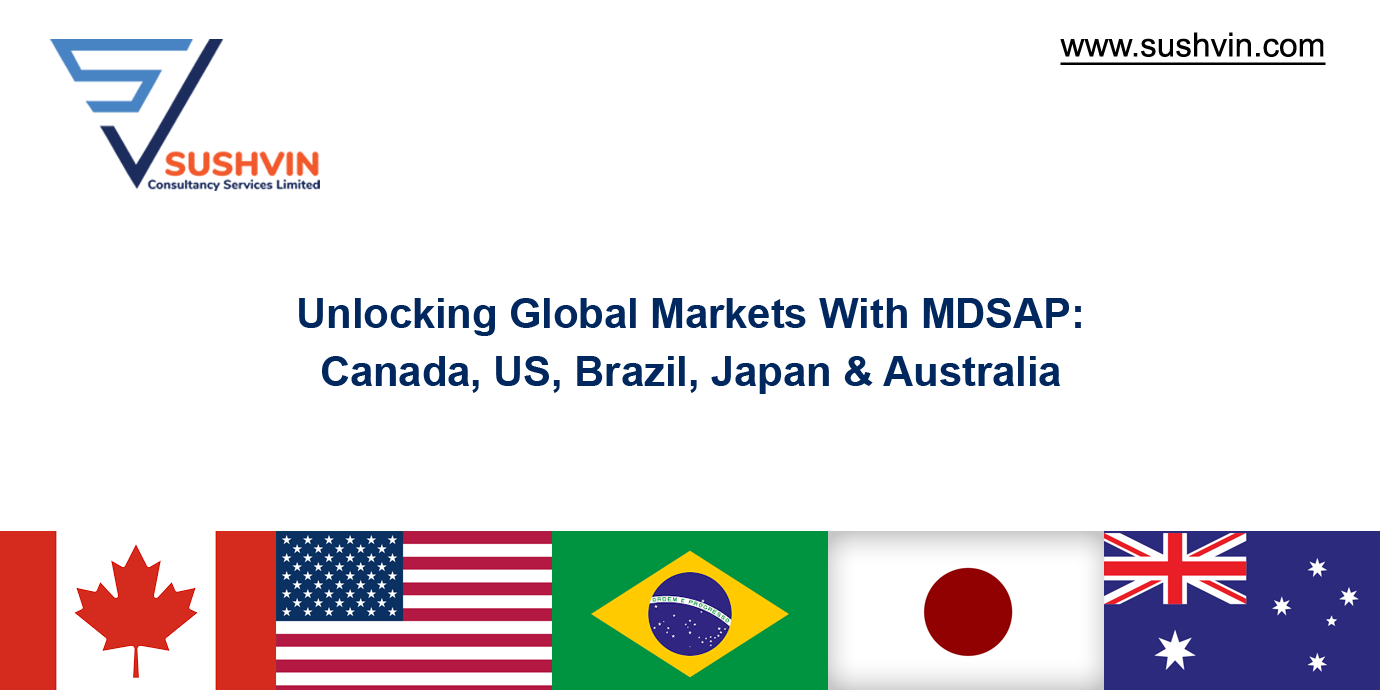
MDSAP: Your Passport to Multiple Markets
The Medical Device Single Audit Program (MDSAP) is a significant initiative in the medical device industry, enabling manufacturers to meet the quality management system (QMS) requirements of multiple regulatory bodies through a single audit. This program offers manufacturers the opportunity to streamline their market access in key global regions, including the United States, Canada, Australia, Brazil, and Japan.
MDSAP in the United States (FDA): How MDSAP Fulfills FDA Requirements
The U.S. Food and Drug Administration (FDA) is one of the five regulatory bodies participating in the MDSAP. By participating in this program, medical device manufacturers can demonstrate compliance with FDA's Quality System (QS) regulation, which is equivalent to ISO 13485:2016. This approach saves time and resources, as manufacturers no longer need to undergo separate audits to fulfill FDA requirements.
MDSAP in Canada (Health Canada): The Canadian Medical Devices Conformity Assessment System (CMDCAS) Transition
Health Canada has fully adopted MDSAP as the sole route for manufacturers to demonstrate QMS compliance. The Canadian Medical Devices Conformity Assessment System (CMDCAS) has been officially phased out, and MDSAP is now the mandatory program for medical device manufacturers targeting the Canadian market.
MDSAP in Australia (TGA): Benefits and Specific Requirements for the Australian Market
The Therapeutic Goods Administration (TGA) in Australia recognizes MDSAP audit report as a valid means to demonstrate QMS compliance for medical device manufacturers. Participation in MDSAP offers manufacturers benefits such as reduced audit burden and improved access to the Australian market. However, it is essential to understand that MDSAP certification does not automatically grant market access. Manufacturers must still comply with additional requirements, such as product-specific standards and TGA conformity assessment procedures.
MDSAP in Brazil (ANVISA): Navigating the Brazilian Regulatory Landscape with MDSAP
The Brazilian National Health Surveillance Agency (ANVISA) accepts MDSAP audit report as a valid method for demonstrating QMS compliance. Participating in MDSAP can ease the process of entering the Brazilian market, as it eliminates the need for an additional audit by ANVISA. However, manufacturers must still comply with specific requirements related to product registration, labeling, and importation processes.
MDSAP in Japan (MHLW/PMDA): The Role of MDSAP in the Japanese Market
Japan's Ministry of Health, Labour and Welfare (MHLW) and the Pharmaceuticals and Medical Devices Agency (PMDA) recognize MDSAP audit as a valid means to demonstrate QMS compliance for medical device manufacturers. By participating in MDSAP, manufacturers can save time and resources, as they will no longer need to undergo separate audits to fulfill Japanese regulatory requirements.
Comparing Regulatory Requirements: Highlighting Key Differences Between Participating Countries
While MDSAP simplifies QMS compliance for medical device manufacturers targeting multiple markets, it is crucial to understand the unique regulatory requirements of each participating country. For instance, product registration, labeling, and importation procedures may vary between counties. Manufacturers should familiarize themselves with these differences to ensure seamless market entry.
Choosing the Right Market Entry Strategy: Factors to Consider When Targeting Specific Countries
When selecting a market entry strategy, manufacturers should consider factors such as the target market's size, growth potential, and regulatory requirements. Understanding the unique aspects of each country can help manufacturers make informed decisions about market prioritization and resource allocation.
Overcoming Language and Cultural Barriers: Tips for Effective Communication with Regulatory Agencies
Effective communication is critical when interacting with regulatory agencies in different countries. Manufacturers should consider the following tips to ensure successful cross-cultural communication:
Conclusion: Leveraging MDSAP to Streamline Market Access in Key Global Regions
MDSAP offers medical device manufacturers a valuable opportunity to streamline their market access in key global regions. By understanding the unique regulatory requirements and cultural differences of each participating country, manufacturers can effectively leverage MDSAP to enter new markets, increase revenue, and expand their global reach.
FAQs
1. What is MDSAP, and how does it benefit medical device manufacturers?
MDSAP is a single audit program that enables medical device manufacturers to meet the QMS requirements of multiple regulatory bodies. This approach saves time and resources, as manufacturers no longer need to undergo separate audits for each country.
2. Which regulatory bodies participate in the MDSAP?
The five regulatory bodies participating in MDSAP are the FDA (United States), Health Canada, TGA (Australia), ANVISA (Brazil), and MHLW/PMDA (Japan).
3. Is MDSAP certification mandatory for entering the Canadian market?
Yes, Health Canada has fully adopted MDSAP as the sole route for manufacturers to demonstrate QMS compliance.
4. Does MDSAP certification guarantee market access in participating countries?
No, MDSAP certification only ensures QMS compliance. Manufacturers must still fulfill additional requirements, such as product-specific standards and registration procedures, to access each country's market.
5. How can manufacturers effectively communicate with regulatory agencies in different countries?
Manufacturers can ensure effective communication by utilizing professional translation services, hiring bilingual staff or consultants, familiarizing themselves with local business etiquette and customs, and leveraging technology for virtual meetings and presentations.
If you have any questions, contact us for expert support.
